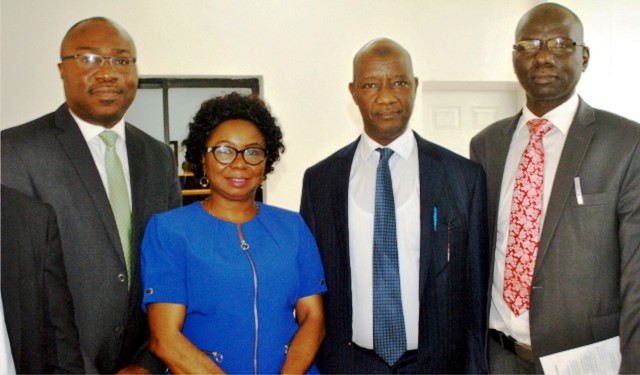Business
FG Rakes In $416m From Oil, Gas Exports

The Nigerian National Petroleum Corporation (NNPC) says a total of crude oil and gas export sales of $416.07 million was realised in June, which is 35.78 per cent higher than the previous month.
The details of the figures were contained in the June 2018 edition of the Monthly NNPC Financial and Operations Reports, released in Abuja, on Thursday.
It noted that the crude oil export sales contributed 274.95 million dollars which translated to 66.08 per cent of the dollar transactions compared with 244.72million dollars contribution in the previous month.
According to the report, the export Gas sales for the month amounts to 141.12million dollars.
The report noted that the corporation undertook the repairs of ruptured gas pipeline which supplies gas to most thermal electricity generating plants in the country.
“In all, a total of 744million standard cubic feet of gas per day (mmscfd) was delivered to the gas fired power plants in the month under review,” it said.
This, it said generated an average power of about 2,970MW compared with the May, where an average of 742mmscfd was supplied to generate 2,940MW.
“A total of 211.51billion cubic feet (bcf) of natural gas was produced in the month of June translating to an average daily production of 7,056.22mmscfd.
“For the period between June 2017 and June 2018, a total of 3,080.90 bcf of gas was produced, representing an average daily production of 7,826.41mmscfd.
“During the period under review, production from Joint Ventures, Production Sharing Contracts and Nigerian Petroleum Development Company contributed about 69.35 per cent, 21.77 per cent and 8.88 per cent respectively, to the total national gas production,” it added.
The report further noted that out of the 209.55bcf of gas supplied in June, a total of 113.08bcf of gas was commercialised, comprising of 36.23bcf and 76.85bcf for the domestic and export market respectively.
This, it said translated to a total supply of 1,207.74mmscfd of gas to the domestic market and 2,561.70 mmscfd of gas supplied to the export market for the month.
The supply, the report said implied that 53.96 per cent of the average daily gas produced was commercialised while the balance of 46.04 per cent was re-injected, used as upstream fuel gas or flared.
“The gas flare rate was 10.33 per cent for the month under review, that is 721.83mmscfd, compared with the average gas flare rate of 10.4 per cent, that is, 813.37mmscfd for June 2017 to June 2018,” it said.
In the downstream sub-sector, 1,194.93million litres of petrol were supplied into the country through the Direct-Sale-Direct-Purchase (DSDP) arrangements as against the 1,096.45million litres of petrol supplied in May 2018.
It noted that the petroleum products (petrol, diesel & kerosene) production by the domestic refineries in the month under review amounted to 205.73million litres compared to 161.91million litres in May 2018.
Transport
Automated Points Concession : FAAN Workers Gave 72hrs To Revise Decisions In PH

Transport
FAAN Announces Pick-Up Points for Go-Cashless Cards

Business
Fidelity Bank To Empower Women With Sustainable Entrepreneurship Skills, HAP2.0
-
Politics3 days ago
2027: NIGERIANS FAULT INEC ON DIGITAL MEMBERSHIP REGISTER DIRECTIVE
-

 Environment3 days ago
Environment3 days agoLAWMA Director Says Sweeping Reforms Have Improved Waste Collection
-
Politics3 days ago
LP Crisis: Ex-NWC Member Dumps Dumps Abure Faction
-

 Politics3 days ago
Politics3 days agoUmahi Dismisses Allegations On Social Media, Insists On Projects Delivery
-

 Sports3 days ago
Sports3 days agoAbia Not Sure To Secure continental Ticket
-
Sports3 days ago
La Liga: Yamal Records First Career Hat-trick
-
Politics3 days ago
NATASHA ELECTRIC VEHICLES INITIATIVE IN KOGI CENTRAL
-
Politics3 days ago
IT’S A LIE, G-5 GOVS DIDN’T WIN ELECTION FOR TINUBU – SOWUNMI

